Why Are Physicists Convinced of the Human Soul?
Are science and spirituality mutually exclusive?
Alan Lightman, a physicist who has researched black holes, stellar dynamics and relativistic gravitation theory, no longer thinks so.
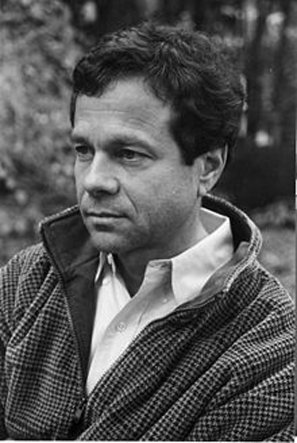
He went to Cambodia on a foreign aid mission to help the people of a small village build up their infrastructure. The village lacked some very basic resources, like reliable access to healthcare. But for all the things they needed, they asked volunteers to spend their limited budget on building one thing: a mosque.
Lightman was surprised and, at first, confused. Surely access to healthcare must be more important than a religious space, right?
But then, he says, “We began to understand what the mosque meant to them. The mosque is not just a religious site, it’s the center of their social, cultural, and spiritual life. They have meetings in the mosque that are not necessarily religious meetings. The whole life of the village revolves around the mosque… It gave us a deeper understanding of the soul of this village.”
“I think that it has made me a more spiritual person myself. I am a materialist, but I call myself a spiritual materialist. I think my development as a spiritual person has been greatly enhanced and motivated and inspired by my work in this village.”
Lightman is not the first physicist whose experiences have coaxed him to look beyond the narrow borders of materialism. But some are not as open-minded.
Matter vs. mind: the war between materialism and idealism
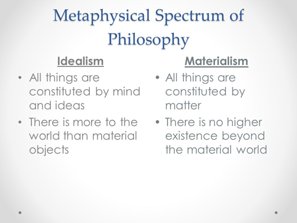
Materialism is the idea that matter is the fundamental substance in nature, and that all things, including the mind and consciousness, are results of material interactions. In Idealism, the mind and consciousness are distinct from and senior to matter.
To materialists, things like thought and decision supposedly arise from a physical organ: the brain. Human behavior, decision, and thought are the result of nothing but the physical laws of entropy, diffusion and electricity along nerve channels in the brain.
Idealists believe that the mind and consciousness are senior to, and able to control, matter. In other words, one’s spirit or soul is the thing which decides, thinks, and is the causative force that starts physical processes like electrical brain impulses and neuromuscular chain reactions.
Some of the most vocal proponents of materialism are in industries such as psychiatry, which would have people believe that all thought and decision is a result of chemical interactions in the brain. The more you think about it, the less it makes sense. If this idea were true, then there would be no such thing as free will or personal responsibility— electricity and chemicals cannot “decide” to do anything.
Scientists call this “The Mind-Brain Problem.” The question is whether human consciousness is senior to matter and controls the brain, or alternatively, that our behavior results from chemical and electrical processes in the brain—the chaotic collision of matter. Despite the logical fallacies inherent in materialism, the ideology continues to persist in certain circles.
But some scientists are critical of materialism and refuse to embrace it. Last year, a group of researchers analyzed a series of articles published in the leading psychiatry journals over the last 20 years, and found that the vast majority of authors that discuss the Mind-Brain Problem (MBP) misrepresent, badly argue, and fail to adequately consider the fallacies of materialism.
In the articles they analyzed, they found that “The two main categories were critiques of dualism and defenses of physicalism (mind as a brain product). These papers revealed several misrepresentations of theoretical positions and lacked relevant contemporary literature. Without further discussion or evidence, they presented the MBP as solved, dualism as an old-fashioned or superstitious idea, and physicalism as the only rational and empirically confirmed option.”
They concluded, “The MBP has not been properly presented and discussed in the three leading psychiatric journals in the last 20 years. The few articles on the topic have been highly cited, but reveal misrepresentations and lack of careful philosophical discussion, as well as a strong bias against dualism and toward a materialist/physicalist approach to psychiatry.”
When physicists studying matter find idealism
Psychiatry is widely considered to be pseudoscience, so I remain unphased by the lack of scientific rigor with which they discuss the Mind-Brain Problem.
But what’s interesting is that some of the world’s most renowned physicists, who study the hardest of sciences and explore the nature of matter itself, often find themselves siding with idealism.
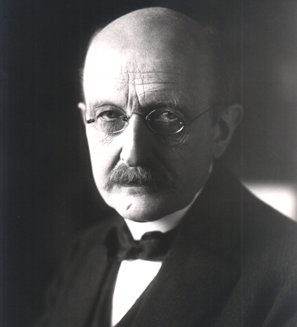
“It was not by accident that the greatest thinkers of all ages were deeply religious souls.” Max Planck (1858-1947), German physicist, noted for his work on quantum theory.
“I am very much a scientist, and so I naturally have thought about religion also through the eyes of a scientist. When I do that, I see religion not denominationally, but in a more, let us say, deistic sense. I have been influenced in my thinking by the writing of Einstein who has made remarks to the effect that when he contemplated the world he sensed an underlying Force much greater than any human force. I feel very much the same. There is a sense of awe, a sense of reverence, and a sense of great mystery.” Walter Kohn (1923-2016), American theoretical physicist, awarded Nobel Prize in 1998.
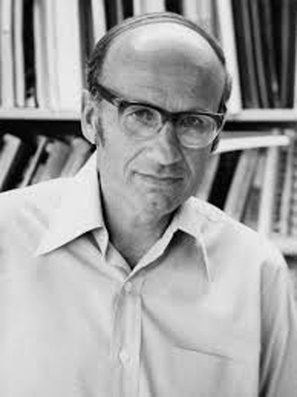
“A commonsense interpretation of the facts suggests that a superintellect has monkeyed with physics, as well as with chemistry and biology, and that there are no blind forces worth speaking about in nature. The numbers one calculates from the facts seem to me so overwhelming as to put this conclusion almost beyond question.” Sir Fred Hoyle (1915-2001), English mathematician, astronomer and cosmologist.
Does quantum physics support idealism?
One of the most famous experiments in quantum physics suggests that consciousness influences matter.
It’s called the Double-Slit Experiment. A barrage of subatomic particles are fired from a tiny “ray-gun” at a flat barrier with two vertical slits in it. The spooky part is this: the particles behave differently when someone is there to observe them, which in theory should have no bearing on their movement.
Does the double-slit experiment prove that consciousness is senior to matter? Many physicists think so.
L. Ron Hubbard (1911-1986), Humanitarian and Founder of the Scientology religion. “When religion is not influential in a society or has ceased to be, the state inherits the entire burden of public morality, crime and intolerance. It then must use punishment and police. Yet this is unsuccessful as morality, integrity and self-respect not already inherent in the individual, cannot be enforced with any great success. Only by a spiritual awareness and inculcation of the spiritual value of these attributes can they come about. There must be more reason and more emotional motivation to be moral, etc., than threat of human discipline.
When a culture has fallen totally away from spiritual pursuits into materialism, one must begin by demonstrating they are each a soul, not a material animal. From this realization of their own religious nature individuals can again come to an awareness of God and become more themselves.” Religious Influence in Society by L. Ron Hubbard
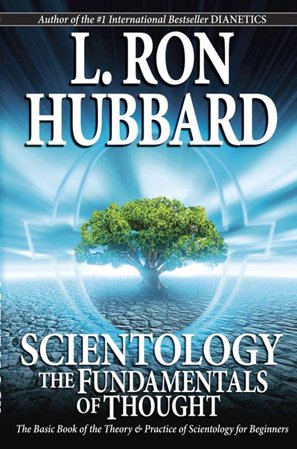
L. Ron Hubbard studied engineering and nuclear physics at George Washington University before he began his deep studies of the mind, spirit, and life.
If you’re interested in learning more about how he used his scientific background to study and decode the mind, thought, and the spirit, I recommend Scientology: The Fundamentals of Thought.
To insist that humans are nothing more than a collection of cells and chemicals is deeply degrading. But when the solution to emotional turmoil or immorality is either psychiatric drugs or a jail cell, it’s certainly profitable.
This is an argument for idealism: you are not your body. You have free will, personal responsibility, your own goals and life purposes, and the power to make them come true on your own determinism. None of those things came from chemicals in your brain. They came from you, a spiritual being.
And if anyone tries to tell you otherwise, tell them to pick up a physics textbook.










